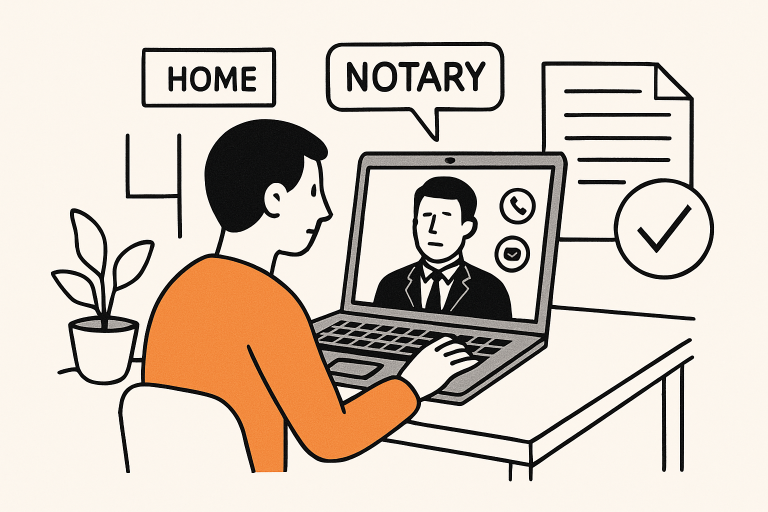LAW
Probate Processes Demystified: Step-by-Step Guidance for Families and Executors

Key Takeaways
- Probate is a legal process that manages a deceased person’s estate, ensuring assets are properly distributed, debts are settled, and goals for the estate are honored.
- Understanding probate steps and preparing in advance helps loved ones avoid common pitfalls, making handling an estate less overwhelming.
- Preparation, open discussion, and reliance on expert resources can significantly reduce complications during probate.
- Numerous resources and professionals are available to support families and executors along this journey.
What Is Probate and Who Is Involved?
Probate is a court-managed process that organizes the distribution of a deceased person’s assets and obligations. It involves reviewing legal documents like wills under court supervision to ensure adherence to the deceased’s wishes or state law if there’s no will. A designated executor oversees the process, and having legal support, such as guidance from a probate attorney Rockford IL, can simplify the proceedings and help avoid costly errors. Involved parties may include family, beneficiaries, executors, and creditors, with hearings open to heirs and claimants. Public probate records emphasize the importance of accurate documentation for fairness and transparency.
When and Why Does Probate Happen?
Probate is necessary when the deceased has assets solely in their name or lacks transfer-on-death instructions. It ensures financial obligations and wishes in a will are honored. The process varies in length and complexity depending on the estate size, asset locations, and potential heir disputes. Probate protects beneficiaries by settling debts and preventing fraudulent transfers, serving as a verification process even for families seeking quick resolutions.
Steps in the Probate Process
- Filing a Petition: The first step is for an interested party—usually the executor or a primary heir—to file a petition with probate court. This formality officially opens the estate and begins the legal process by notifying both beneficiaries and the general public.
- Appointing an Executor or Administrator: If there is a will, it typically names an executor. If not, the court designates an administrator, giving this person the power to act on behalf of the estate.
- Inventory of Estate Assets: The executor compiles a thorough list of everything the deceased owned, including real estate, vehicles, investment accounts, jewelry, digital assets, business interests, and other valuables. Professional appraisals are often required for significant or complex items.
- Paying Debts and Taxes: After publicly notifying creditors, the executor must review each claim and pay outstanding bills and taxes. It can involve negotiating debts or liquidating assets if cash is limited.
- Distribution to Beneficiaries: Only after all debts and taxes are fully resolved are the remaining assets distributed to named beneficiaries or, when no will exists, according to state succession laws.
- Closing the Estate: The final step involves submitting a detailed report to the court demonstrating that all debts were paid and assets shared appropriately. Once approved, the estate is closed, and the executor is formally relieved of duty.
Avoiding Common Probate Pitfalls
Probate can minimize legal disputes, but families often face challenges that increase time and costs, such as outdated wills, omitted heirs, and incomplete asset documentation. Issues like misplacing a life insurance document can delay proceedings. An article from Forbes highlights that pitfalls from poor communication and lack of organization can be avoided with transparency and regular updates to documents.
- Regularly update estate documents and share details with a trusted family member or financial advisor.
- Ensure major life changes—like marriages, births, or new property purchases—are reflected in your will and estate plan.
- Document every major conversation and transaction related to estate management. Memorialized records help resolve disputes and quickly answer questions in court.
Probate Alternatives: Are There Easier Options?
Families can simplify the transfer of assets by using legal tools like small estate affidavits and living trusts, which help avoid probate. Assets with designated beneficiaries, such as life insurance and retirement accounts, can also bypass probate. These methods are typically more private, cost-effective, and efficient, offering peace of mind when discussed with professionals in advance.
The Executor’s Role and Responsibilities
The role of an executor involves managing an estate with both authority and responsibility. Executors must have strong organizational and interpersonal skills to safeguard assets, handle paperwork, pay bills, deal with taxes, and maintain communication with family members and creditors. Key tasks include compiling essential documents, developing a timeline for legal obligations, and logging decisions and transactions to ensure a clear record.
Tips for Families Facing Probate
- Begin by immediately collecting essential paperwork, such as legal identification, banking information, and titles to any major assets.
- Discuss openly and honestly with all beneficiaries and close relatives to avoid surprises or misunderstandings.
- If something appears unusual—such as an unclear will, unexpected debts, or suspicious claims—obtain advice from a qualified estate or probate professional.
- Exercise patience and empathy, remembering that court and tax timelines sometimes lead to months-long waiting periods. Setting expectations clearly at the start reduces frustration.
Creating a written summary or timeline of anticipated steps in many families helps everyone stay focused and involved. When difficult topics are discussed with transparency and compassion, loved ones feel better supported and more confident as the probate process unfolds.
When to Seek Professional Guidance
Probate varies in complexity based on family dynamics and assets. Consulting a legal expert is essential in cases of heir disputes, significant debts, or unique property types. Staying informed and seeking advice can prevent costly errors. Additionally, community education and online resources help families navigate these issues.
LAW
How to Notarize Documents at Home
Understanding Remote Online Notarization (RON)
Recent technological advancements have made it easier to complete legal and business paperwork without stepping outside your home. Among the most convenient innovations is Remote Online Notarization (RON), which enables you to connect with a commissioned notary online to notarize your documents legally. This digital process is secure, efficient, and legally recognized in many areas, eliminating the complications of scheduling an in-person notary visit or finding a local office. For residents in some states, resources like notary public study guide New York can help clarify state-specific guidelines and procedures for remote notarization.
During a RON session, an online notary utilizes secure audio-visual technology to verify your identity, witness your signature, and affix a digital notarial seal. The session is typically recorded and archived, providing an added layer of authenticity and protection for your important records. This method is especially attractive for professionals and families seeking greater flexibility in managing paperwork.
As more states embrace online notarization, individuals must understand the nuances and benefits of RON before engaging with a service. Since processes may vary depending on local law and the type of document being notarized, being well-informed helps prevent delays and ensures documents are legally binding.
With online notarization, you maintain control over your time while gaining access to a streamlined, legally compliant solution. The reliability and security of virtual platforms continue to expand, making it a practical option for anyone who needs legally notarized documents without traditional limitations.
Legal Status of RON Across the United States
Remote Online Notarization has led to widespread adoption in numerous states, although legislation and regulatory standards differ across jurisdictions. For example, Illinois’ E-Notary system allows residents to notarize their documents from anywhere, and similar systems are expected to become even more prevalent in other states by 2025. However, you should verify state-specific requirements to ensure your notarization will be recognized, as some states mandate in-person identification for certain documents or limit the types of documents eligible for remote notarization.
Regulators are continually updating laws to balance innovation with security and fraud prevention. To confirm the legitimacy of an online notarization, consult your state’s Secretary of State website or browse resources like the National Association of Secretaries of State for recent developments in digital legal procedures.

Steps to Notarize Documents at Home
- Choose a Reliable Online Notary Service: Evaluate platforms to ensure they are officially recognized in your state and employ only commissioned notaries. The platform should be secure, easy to use, and maintain a transparent process.
- Prepare Your Document: Before starting, make sure all necessary details are complete, as incomplete paperwork may cause delays or be rejected.
- Verify Your Identity: Before the session, you may be required to upload a picture of your identification (e.g., state ID or passport) or answer knowledge-based authentication questions.
- Attend the Virtual Notarization Session: Join a live video call with the notary. The notary will observe your signature and apply their electronic notarial seal, while the session is usually recorded for authentication.
- Receive the Notarized Document: After completion, you’ll get a digitally notarized document, which you can save, share, or print as needed.
Benefits of Notarizing Documents at Home
- Convenience: The entire notarization process, from verification to receipt, can be handled from your device, eliminating travel and waiting times.
- Speed: Many virtual notary services promise turnaround in under 15 minutes, allowing urgent documents to be handled expeditiously.
- Security: RON platforms typically use state-of-the-art encryption, digital session recordings, and careful ID verification, providing robust protection against fraud and unauthorized access.
Modern online notary platforms also provide secure document storage and retrieval, making it easy to manage your notarized paperwork whenever needed.
Common Documents Suitable for RON
A growing array of documents can be legally notarized online, providing wide utility for business and personal matters. These include:
- Real estate closing paperwork and mortgage documents
- Power of attorney forms
- Affidavits, sworn statements, and acknowledgments
- Parental consent or travel authorization forms
- Contracts and commercial agreements
It’s important to note that, according to current law, some paperwork—especially those issued by government agencies, like birth certificates or certain international documents—still typically requires in-person notarization for verification and acceptance.
Choosing a Reliable Online Notary Service
Selecting a reputable online notarization platform greatly affects your documents’ security and legal soundness. Always confirm that your chosen provider operates under your state’s legal framework and employs properly commissioned notaries.
Key Considerations When Choosing a Platform
- Legal Compliance: The platform must be authorized to operate in your jurisdiction and have clear proof of compliance and regulatory oversight.
- Security Features: Prioritize services that offer end-to-end encryption and rigorous privacy policies, protecting your sensitive data throughout the process.
- User Support and Ease of Use: The best providers simplify each step, with clear instructions, responsive support, and helpful tutorials.
Compare reviews and features to make an informed decision, and always double-check the latest legal requirements before beginning.
Final Thoughts
Remote online notarization has transformed how individuals and businesses manage legal documentation, offering unprecedented convenience, speed, and security. By becoming familiar with your state’s RON laws, choosing a trustworthy service, and preparing your documents in advance, you can notarize essential paperwork easily and confidently—from anywhere.
LAW
How Bail Bonds Assist Individuals Navigating the Justice System
Bail bonds are a cornerstone of the American criminal justice system, providing a practical means for individuals to secure their release from custody while awaiting trial. This system is built on the presumption of innocence, allowing defendants to prepare for court and continue daily responsibilities. For those unable to pay the full bail amount, working with a licensed bondsman provides critical support, enabling release from jail in exchange for a fee. By exploring options like surety bail bonds Wharton, families and defendants can better navigate challenging circumstances, remain with their loved ones, and address charges in the community instead of from behind bars.
The bail bond process does more than ensure appearance in court—it helps individuals maintain family unity, employment, and access to essential resources during one of the most stressful periods of their lives. The system’s structure, however, is complex and evolving. Understanding bail bonds, how they work, and their wide-reaching impacts on individuals and communities is essential for anyone encountering the justice system.
Understanding Bail Bonds
Upon arrest, a court may assign a bail amount that serves as a safeguard, ensuring the defendant will appear for all required court proceedings. Bail is a financial sum set by the judge, informed by the severity of the alleged offense and the defendant’s perceived risk of flight. When the full bail sum exceeds personal or family resources, bail bondsmen step in to offer a surety bond, essentially pledging the bail amount to the court on the defendant’s behalf in exchange for a fee or premium. According to Investopedia, bail bonds serve as a practical solution for many who cannot afford to pay the full amount upfront, providing access to pretrial release while still ensuring accountability.
The surety acts as a financial guarantee to the court, promoting accountability while granting pretrial freedom. This vital process supports not only individuals but also the overall efficiency and accessibility of the judicial system.
The Process of Obtaining a Bail Bond
Obtaining a bail bond involves several deliberate steps designed to safeguard the interests of the defendant, the court, and the bail bondsman:
- Contact a Licensed Bail Bondsman: Either the accused or a representative reaches out to a reputable, licensed professional who operates within the legal frameworks of their state.
- Sign an Agreement and Pay the Premium: An agreement is drawn up, typically requiring a non-refundable payment equal to about 10% of the total bail. Collateral might be necessary, such as property or valuables, depending on the risk and amount involved.
- Bail Bondsman Posts the Bond: The bondsman delivers the surety bond to the court, ensuring the defendant is released from custody.
- Compliance with Court Orders: The defendant must adhere to all court stipulations; if they fail to appear, the bondsman may seek reimbursement from the collateral or employ recovery agents to secure the defendant’s return.
Financial Implications of Bail Bonds
Bail bonds offer immediate freedom but come with ongoing obligations. The 10% premium paid to the bondsman is non-refundable, regardless of the case’s result. Should a defendant fail to appear in court, the bondsman is at risk of forfeiting the full bail sum to the court and may seek repayment from the defendant or their cosigner, often by claiming the pledged collateral.
The financial stress is significant—many families resort to borrowing or liquidating assets to meet collateral demands, and repeated interactions with the bail system can trap poorer households in cycles of debt or loss.
Bail Bonds and Community Impact
The effects of the bail system extend beyond individual defendants, often disproportionately impacting communities of color and low-income families. Cash bail’s widespread use has fueled higher rates of pretrial detention in marginalized populations, with many held not because they pose a flight risk or danger, but due to their inability to pay. As highlighted by research on pretrial practices at NIJ, this cycle exacerbates social and economic inequality, leading to job loss, unstable housing, and increased family strain.
This broader impact demonstrates how bail policies can perpetuate cycles of disadvantage across generations. Addressing these systemic issues requires reforms that balance public safety with fairness and equity in the justice system.
Recent Reforms in the Bail System
Growing awareness of the problems inherent in cash bail has spurred reforms in states such as Illinois and New York. Illinois recently became the first state in the U.S. to abolish cash bail entirely, meaning individuals can no longer be held solely because they are unable to pay. New York’s legislative efforts have scaled back cash bail for most non-violent offenses, aiming to reduce unjust pretrial incarceration. Other jurisdictions are exploring similar reforms that prioritize individual risk assessments over financial sureties.
Alternatives to Traditional Bail Bonds
Alternatives have arisen to counter the limitations and inequities of the cash bail model. Standard options now include:
- Pretrial Services Programs: These government- or nonprofit-led initiatives supervise defendants and provide social support, helping ensure court appearances without imposing a financial burden.
- Community Bail Funds: Charitable organizations, such as the Chicago Community Bond Fund, raise donations to cover bail for those who cannot afford it, thereby reducing jail populations and promoting systemic fairness.
Such alternatives prove particularly important in communities hit hardest by the traditional bail process, as they reduce incarceration rates and related social harms.
The Role of Bail Bondsmen
Bail bondsmen play an intermediary role within the justice system. They facilitate pretrial release, accept responsibility for the whole bail sum, and ensure their clients return to court as scheduled. Bondsmen are legally empowered to track down and recover clients who violate the terms of their release. Their work is essential within the current system, though mounting criticism highlights the need for better oversight and potential alternatives to profit-driven models.
Conclusion
Bail bonds are a vital resource for countless families facing the uncertainty of criminal charges. They uphold the right to freedom before a trial, help defendants maintain community ties, and ensure cases proceed efficiently. Nonetheless, significant financial and social burdens persist, making ongoing reform and the emergence of alternatives both necessary and urgent for advancing fairness in the American justice system.
LAW
Diversifying Paths to Legal Careers: Opportunities Beyond the Courtroom

The Changing Landscape of Legal Careers
For years, many have associated legal careers with high-pressure litigation, dramatic courtrooms, and mountains of paperwork. While this stereotype still has some merit in the traditional legal world, the reality is that legal careers now offer much more variety than ever before. Whether you’re a recent graduate, a seasoned attorney, or someone considering law school, there are more pathways than ever to apply your legal training in innovative and meaningful ways. A wealth of opportunities now exists in corporate environments, technology companies, policy think tanks, and beyond. A quick visit to Sloanlawkc.com highlights just how interconnected legal skills are with industries outside of the courtroom. The legal profession is evolving rapidly due to tighter regulations and shifting societal expectations. Legal professionals can now take on hybrid roles that integrate compliance, risk management, policy interpretation, and strategic business planning. These multifaceted positions allow them to make tangible impacts across sectors, such as leading diversity initiatives or serving as privacy consultants. This diversity of options makes the legal profession more adaptive, diverse, and resilient.
What Drives Professionals Away from Tradition?
The legal profession increasingly embraces non-traditional paths due to work-life balance, social change, and proactive roles. As many as one-third of law graduates now work outside traditional law practice, supporting companies in regulatory matters, guiding product development, and driving organizational decision-making. These non-traditional roles are now considered viable, respected career options, reflecting broader workforce trends. Legal professionals lead cross-departmental teams and act as multinational corporations’ chief compliance or ethics officers. They are at the forefront of developing legal technology platforms that improve access to justice and simplify legal processes.
Top Alternative Careers for Legal Professionals
Legal professionals are crucial in various alternative careers, including compliance and risk management, legal technology, mediation and arbitration, policy and advocacy work, and academic and legal education. Compliance and risk management roles involve analyzing new laws, mitigating exposure, and communicating risk to executives. Legal technologists design and implement software tools for law firms and startups, while mediation and arbitration involve resolving legal disputes through empathy, objectivity, and creative problem-solving. Legal professionals also contribute to policy development and advocacy work, crafting legislation and leading campaigns that impact the legal landscape.
Essential Skills: What Transfers Outside Courtrooms?
Legal skills, such as analytical reasoning, research, and persuasive writing, are essential in various industries, such as consulting, finance, healthcare administration, human resources, and entrepreneurship. They guide contract negotiations and marketing strategies. Legal occupations are expected to grow as companies focus on ethical standards and seek expert guidance. Soft skills, such as synthesizing complex information, adapting messaging, and facilitating consensus, are also crucial. Strong legal professionals listen actively, anticipate risk, and communicate assertively.
Emerging Role of Technology in Legal Work
Technology is transforming law practice, document review, e-discovery, legal research, and client communication. Cloud-based tools, AI-powered algorithms, and digital filing systems are essential for legal operations. Legal professionals who combine technical aptitude with legal knowledge are in demand for data privacy, cybersecurity, and project management roles. This transformation is not limited to large law firms but also includes solo practitioners, non-profits, and governmental agencies. Positioning oneself as knowledgeable about both law and technology expands the scope of possible roles, ensuring relevance in the digitized marketplace.
How to Broaden Your Legal Career Prospects
Stay updated on legal and industry developments by subscribing to news updates, attending conferences, and joining professional groups. Strengthen your technology skills through online learning, certifications, and industry workshops. Pursue additional certifications in niche areas like compliance, mediation, or policy analysis. Build a strong network within and outside the legal field to introduce new perspectives and find suitable positions. Engage in thought leadership by writing articles, speaking at events, or participating in webinars to increase visibility and position yourself as a trusted advisor.
-

 Entertainment10 months ago
Entertainment10 months agoEnchantment & Excitement: Crafting Unforgettable Event Experiences
-

 GENERAL1 year ago
GENERAL1 year agoFrom Fan Art to Original Works: The Diversity of doujindesu Creations
-

 GENERAL11 months ago
GENERAL11 months agoEngland Business Visa Requirements for American and International Citizens in 2025: A Guide for Entrepreneurs
-

 GENERAL10 months ago
GENERAL10 months agoCrossword Conundrum: The Significance of vault opener nyt crossword
-

 GENERAL1 year ago
GENERAL1 year agoLatest Trends in Men’s and Women’s Jackets for the Upcoming Season
-

 GENERAL10 months ago
GENERAL10 months agoExploring the World of nhentai.nef: A Comprehensive Guide for New Users
-

 Health1 year ago
Health1 year agoDiscovering gel ooru: The Ultimate Guide to This Unique Traditional Craft
-

 Entertainment10 months ago
Entertainment10 months agoExploring the World of NHentai: A Comprehensive Guide to nhentai.met
